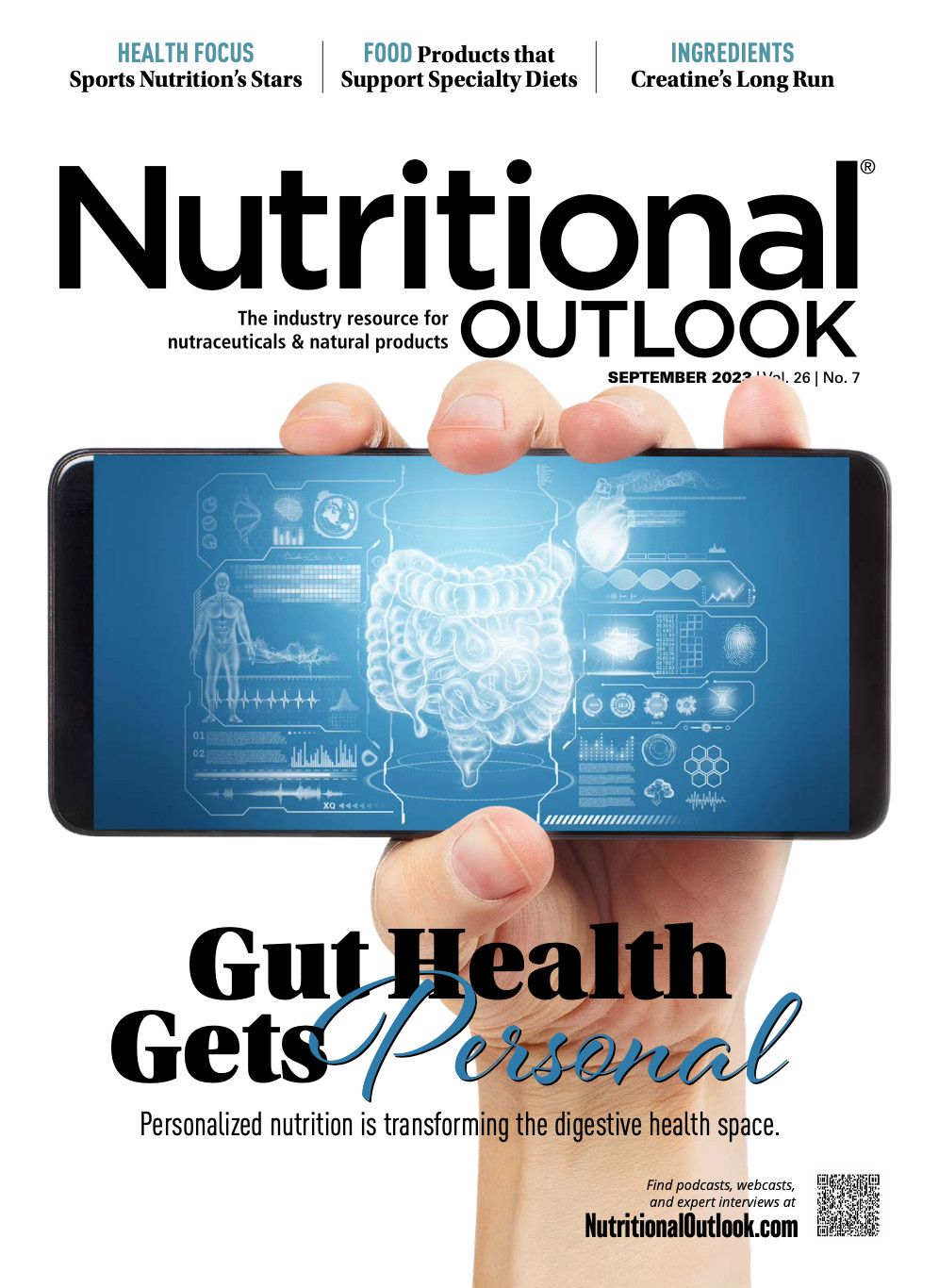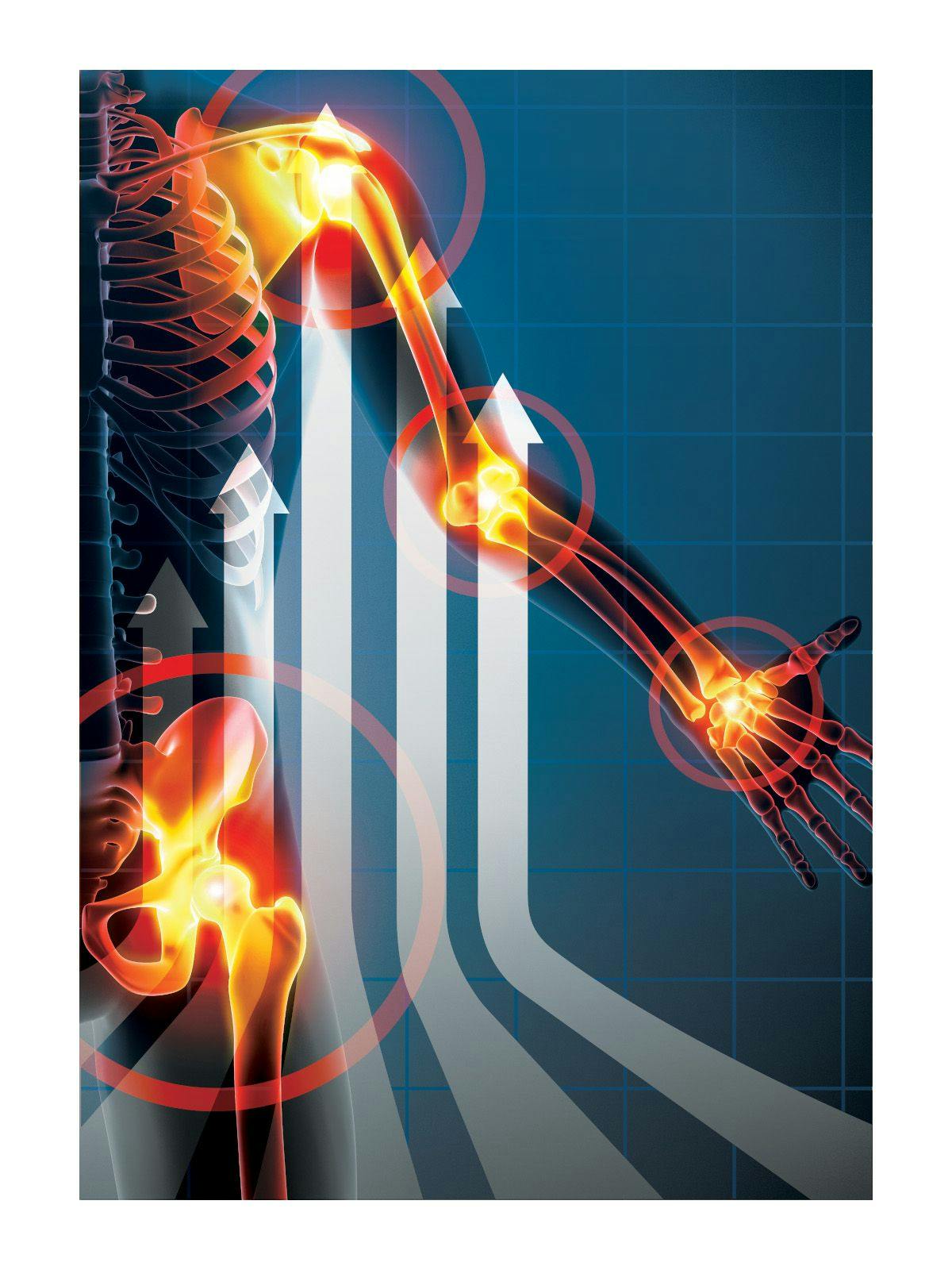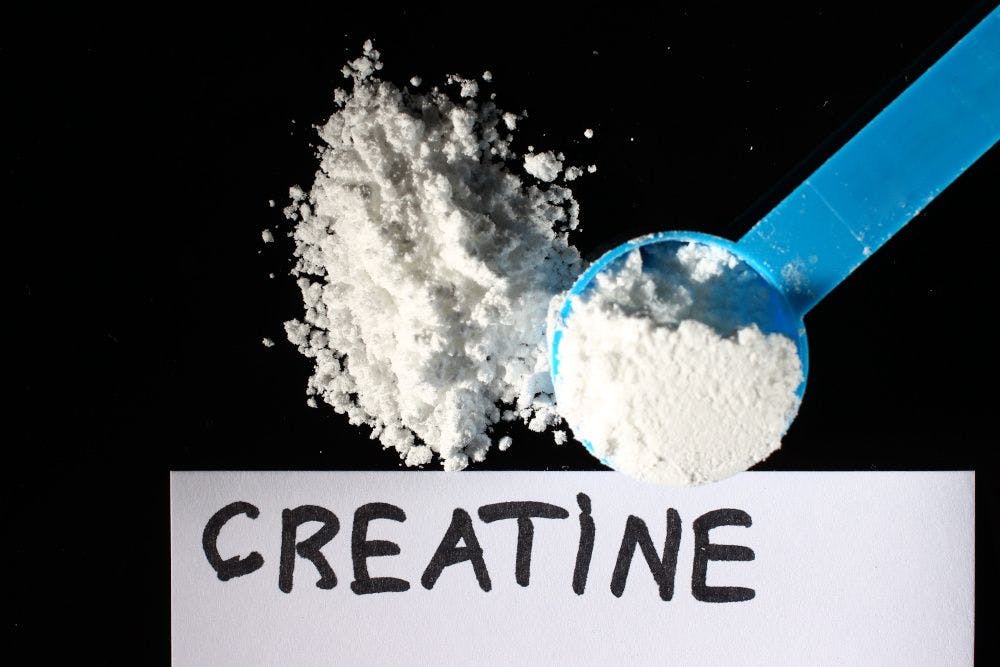If knowledge is power, it’s worth contemplating for a moment that the average consumer today has access to more knowledge than did the kings and queens of even a century ago. And one way these empowered consumers are exercising their newfound authority is by taking control of their health.
Their deputies in that pursuit are the apps, trackers, and at-home test kits that have eliminated layers of healthcare gatekeeping to deliver real-time data direct to individuals, who use that intel to inform everything from fitness plans to diet strategies.
Whether you call it personalized health or precision nutrition, it’s a revolutionary approach to wellness that’s settling in quite nicely around the digestive space, and for reasons that Stefan Weitz, cofounder, Jetson Health (Chicago), thinks are elementary: “Our guts,” as he sees it, “are like our fingerprints—uniquely ours.”
Supplement formulators see it this way, too. And by mining consumer data for insights into individual gut-health needs, they’re tailoring individualized solutions to meet them. “The good news,” Weitz adds, “is that these solutions are often simple, affordable, and relatively benign.”
This Time It’s Different
While the degree of precision we’re witnessing today is a phase shift for the nutrition industry, consumers have long applied an element of personalization to their supplementation regimens. As Weitz says, “Just like when we choose that cherry-red lipstick over the muted mauve, we pick supplements that support the benefits we want.”
The difference now, he goes on, “is that there’s less guesswork and more science-backed decision-making.”
Romy Block, MD, cofounder, Vous Vitamin (Highland Park, IL), agrees. Instead of choosing supplements based on word of mouth, celebrity endorsements, or advertising—strategies that she claims “sub-optimize health”—personalization “engages the consumer in an interactive and iterative digital conversation around their own profile, representing a step-change improvement because we can now relate a particular product to an individual’s unique attributes.”
No wonder she’s eager to see what the approach brings next. “It’s an exciting prospect that for the first time in our industry’s history, companies like ours have large-scale sets of consumer-level data to use in building evidence-based, personalized vitamins that were never meant to live on thousands of retail shelves but instead in the specific medicine cabinets of the individuals taking them,” she says.
Don’t Miss Our Latest Webcast! "Personalized Nutrition: Success Strategies & Challenges"
Personalized nutrition has an evergreen influence on the nutraceuticals industry, shaping the product landscape for years to come. What challenges do companies in this market face today? In this webcast, hear a physician and the cofounder of a leading personalized vitamin subscription brand discuss key issues, including the role of artificial intelligence, data protection, and scientific substantiation, as well as how to grow the audience for personalized nutrition products into the future.
Watch for free!
Transformative Technologies
And none of it would have been possible absent data. As Block notes, “The application of data science and artificial intelligence has been critical to the personalized-vitamin experience,” as it lets companies like Vous Vitamin do everything from predict shopping-cart behavior to tweak formulation specs “in ways that would have been unimaginable at our outset.”
In fact, argues Nathan Price, chief scientific officer, Thorne (New York), the convergence of at least three key technologies will drive personalized nutrition in theory and in practice, both now and for the foreseeable future.
First among them, he says, are “deep measurement technologies that let us make thousands of measurements at low cost from, for example, blood or stool.” Next up, he cites the emergence of “digital twins”: computer representations of an individual’s unique biology that help formulators “simulate expected benefits from intervention combinations,” Price continues.
The third critical tech that he predicts will shape personalized nutrition is, not surprisingly, those large language models that we’ve all heard so much about—think ChatGPT or Bard.
“The key,” Price emphasizes, “is to connect all three to trusted information sources to ensure the accuracy of what’s given back, as well as to inform the technologies with individual measurements for deep personalization. We’ve never had anything remotely like this before, and it leads to a democratization of knowledge at a scale that’s truly transformative.”
Culture Shift
But whiz-bang technology aside, rank-and-file consumers also deserve credit for embracing the technology that’s fostered such a radical change in the first place, Block points out.
“There’s been a culture shift around consumers’ technology use,” she observes, noting that when Vous Vitamin first launched in early 2014, many consumers—particularly older ones—“were scared to shop online or enter credit-card information on sites beyond Amazon.”
While COVID-19 helped break down those barriers, so did the steady proliferation of tech-enabled direct-to-consumer services that have sprung up since. “And now,” Block says, “in 2023, consumers are very comfortable with ecommerce and subscription delivery-box programs”—which, conveniently enough, is how many personalized-nutrition products arrive on consumers’ doorsteps.
Gut Punch
More of those products are landing there by the quarter, too, with many aiming directly at digestive health.
And it makes sense. As Price says, “Sixty to 70 million U.S. adults suffer from some kind of gut-health issue, so a large fraction of the population is looking for solutions.” That’s helped lift the global digestive-health market to a value of $47.8 billion in 2022, per Grand View Research, with compound annual growth of 8.2% predicted from 2023 to 2030.1
When it comes to personalization specifically, Price notes that respondents to a 2022 McKinsey & Co. survey said they were much more likely to prioritize personalization than they were the year before, and that Comet Market Research placed personalization among its top-three picks for the gut-health market in 2023.
Intensely Personal
If consumers intuitively see gut health as suited to personalization, the evidence suggests they’re on the right track. “Microbiome science,” Price points out, “has advanced tremendously during the past decade, and it’s showing that the microbiome is intensely personal.”
Indeed, a study2 he led analyzing data from 10,000 subjects found that an individual’s microbiome “becomes increasingly unique beginning around age 50,” Price notes. “So your microbiome looks less and less like anyone else’s if you age healthily.”
Moreover, “Gut health is readily accessible via a stool sample,” he adds. All of which leads him to conclude that “personalized health’s emphasis on individual needs and preferences is transforming the formulation and marketing of gut health supplements that cater to specific gut health needs.”
Test Prep
And where do they get the data from which to tailor those bespoke formulations? From tests that consumers take often in the comfort of their own homes. As Price says, “The step change is how much more precise we can be with testing, and thus how much better people can know their own bodies.”
For example, microbiome tests like those that Thorne includes in its gut-health battery use what he calls a “microbiome wipe technology” to analyze the full complement of microbial genes in a consumer’s gut. The company then sequences the detected DNA “to identify what’s living in the gut, the diversity of the microbiota, and the balance between beneficial bacteria like Bifidobacterium and Lactobacillus and potentially harmful bacteria,” he says.
Meanwhile, fecal occult blood tests detect amounts of blood in the stool small enough to elude sight. Further stool testing might identify parasites, bacteria, or pathogens that could cause gastrointestinal symptoms while also revealing signs of inflammation or other changes in the digestive tract.
Blood tests also spot infection and inflammation, as well as signs of malabsorption possibly associated with the gut, Price continues. “And metabolomics testing is emerging,” he adds, “with the latest science showing that information about the microbiome can be gleaned from small molecules made by the microbiome that are then absorbed into the bloodstream.”
Breath tests that measure exhaled gases such as hydrogen and methane can detect lactose intolerance, small-intestinal bacterial overgrowth, and conditions like fructose malabsorption, while assays of certain biomarkers—enzymes, for instance—open a window onto digestive function. Price notes as a case in point that low levels of elastase, a pancreatic enzyme that digests proteins, might signal pancreatic insufficiency and the downstream potential for nutrient malabsorption and deficiency.
Finally, gut-lining assessments scope out signs of inflammation and immune responses that might reflect a compromised gut lining, as is often implicated in “leaky gut.” And given the gut’s major immune role, Price points out, “Looking at various immune markers by testing gives insights into how the gut’s immune function is doing.”
Informing Formulations
Once all that data lands in formulators’ laps, the real personalization begins. “Let’s break it down,” Price says.
If a test finds that a consumer’s gut microbiome is “out of balance,” for example, Thorne can recommend a prebiotic, probiotic, or postbiotic supplement to bring it back into line, Price says. So in cases where test results show scant presence of beneficial species like Bifidobacterium or Lactobacillus, a probiotic supplement containing those species might be in order.
On the other hand, armed with the knowledge that our microbiomes produce many B vitamins, test results failing to find the genes that code for a particular B vitamin’s production might suggest supplementing with the vitamin itself, Price explains.
“If malabsorption is an issue, indicated by fats being present in the stool,” Price goes on, “then a supplement to support bile function can be suggested.” Meanwhile, signs of inflammation or a compromised gut lining call for support from amino acids like L-glutamine, “or a compound like butyrate that strengthens the gut barrier,” he says. And if the gut’s immune response seems weak, the simple introduction of vitamins C and D, or even botanicals like Echinacea, might be just the trick.
Beyond Probiotics
Whatever winds up on the list, Price says, “It’s important to note that all supplement recommendations are tailored to personal needs based on test results while also taking into account overall health, lifestyle, and dietary preferences.”
Which, after all, is the hallmark of personalization. “We have greater flexibility in matching consumers to their most optimal nutritional regimens when we have data on their needs,” Block says. “We can now tell if a consumer has a complex GI condition like Crohn’s or colitis, or if they have digestive discomfort with certain supplements, like iron. We’re no longer forced to make blanket statements—like all consumers should take a daily probiotic—because we can find those consumers who will benefit most from this approach.”
In fact, she emphasizes that Vous Vitamin is “not in the business of trying to target probiotics or other gut-health supplements based on genetics or stool samples,” using instead dietary and personal-health data to decide whether or not a probiotic might even be appropriate for an individual’s daily supplement formula.
“The typical off-the-shelf multivitamin doesn’t contain probiotics, and the consumer is forced to determine whether or not they might need one and purchase it on their own,” she notes. “We use data to remove this burden and craft multivitamins with a more creative range of nutritional support, possibly including probiotics.” Or not.
Still Iterating
While Block is certainly bullish on personalized nutrition’s potential to improve consumers’ choices and gut health alike, she also acknowledges that the science behind the approach is still in its early stages.
For starters, “There’s a lack of consensus around what even defines a ‘healthy’ microbiome,” she notes. And at-home test methods remain limited. “Expensive and invasive testing creates friction with many,” she concedes. “It’s intimidating and off-putting to collect and send a stool sample, and it’s costly and dangerous from a privacy perspective to submit personal genetic information to a third party.”
Not all consumers are skilled at conducting at-home tests with the same precision as would be standard in a doctor’s office, either, she continues, adding that while results can look like a slam-dunk, “you really need to trust the source and understand what they’re saying from a scientific perspective; many genetic tests may show you if you have a gene, for example, but they don’t tell you if that gene’s active or passive.”
Price recognizes the constraints, as well, admitting that even Thorne’s own gut-health test presents only “a snapshot of a person’s gut health at a particular moment, which might not take into account changes triggered by factors such as diet, stress, or sleep.”
Data analysis poses further obstacles, he continues. Consider that the gut interacts with multiple body systems, including the immune, endocrine, and nervous systems, “creating complex associations that might not be fully captured or identified by a gut-health test,” he says.
And the products themselves are imperfect. As Jetson’s Weitz puts it, “Supplements sometimes promise the moon while delivering a bit of moon dust.” Even those formulated to a fare thee well can display different degrees of effectiveness in different bodies, given an individual’s genetics, metabolism, lifestyle, and ability to absorb and use active ingredients.
Supplementation Singularity
The upshot: We haven’t reached precision-nutrition singularity just yet. As Block cautions, “Ultimately, consumers need to weigh the cost and privacy risks of these methods against the purported utility that the information serves for vitamin selection and dosing. We’ve seen too many consumers told that they need to swallow a whole pharmacy every day when that’s clearly not warranted for them.”
Nevertheless, she and others in the space can’t deny their optimism.
“The future is exciting in this arena,” Block declares. “We look forward to better-designed scientific studies on the interplay of nutrition and the gut microbiome. Bio-banks are growing with testable material, and artificial intelligence is improving the analysis and comparison of results. We’re also getting more consumers into longitudinal studies where they’re retested at intervals, so we can observe changes based on interventions. This will produce enhanced knowledge, and over time we’ll improve products and the matching systems used to help consumers on their health journey.”
Price predicts more integration among wellness disciplines, too. “Healthcare practitioners, scientists, dietitians, and health coaches are collaborating more than ever, delivering more holistic and personalized care,” he says. “So personalized health’s emphasis on individual needs and preferences really is transforming the formulation and marketing of gut-health supplements. And in the future, we expect even more personalization.”
References
- Grand View Research. Digestive health products market size, share & trends analysis report by product (non-alcoholic beverages, dairy products), by ingredient (food enzymes, probiotics), by region, and segment forecasts, 2023-2030. https://www.grandviewresearch.com/industry-analysis/digestive-health-products-market
- Wilmanski, T.; Diener, C.; Rappaport, N.; et al. Gut microbiome pattern reflects healthy ageing and predicts survival in humans. Nat Metab. 2021, 3 (2), 274-286. DOI: 10.1038/s42255-021-00348-0






















